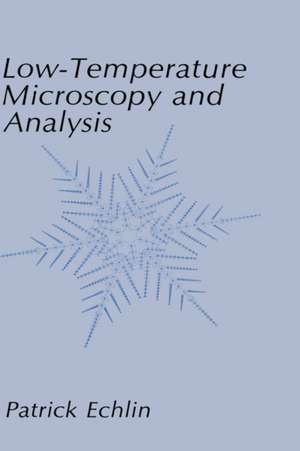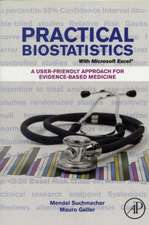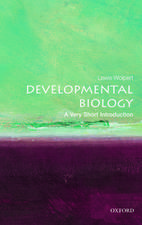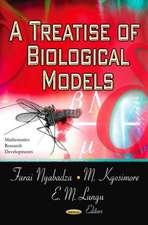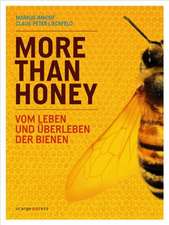Low-Temperature Microscopy and Analysis
Autor Patrick Echlinen Limba Engleză Hardback – 30 mar 1992
| Toate formatele și edițiile | Preț | Express |
|---|---|---|
| Paperback (1) | 1229.40 lei 6-8 săpt. | |
| Springer Us – 17 iun 2013 | 1229.40 lei 6-8 săpt. | |
| Hardback (1) | 1235.88 lei 6-8 săpt. | |
| Springer Us – 30 mar 1992 | 1235.88 lei 6-8 săpt. |
Preț: 1235.88 lei
Preț vechi: 1507.17 lei
-18% Nou
Puncte Express: 1854
Preț estimativ în valută:
236.56€ • 257.04$ • 198.84£
236.56€ • 257.04$ • 198.84£
Carte tipărită la comandă
Livrare economică 21 aprilie-05 mai
Preluare comenzi: 021 569.72.76
Specificații
ISBN-13: 9780306439841
ISBN-10: 0306439840
Pagini: 540
Ilustrații: XXIV, 540 p.
Dimensiuni: 156 x 234 x 32 mm
Greutate: 0.97 kg
Ediția:1992
Editura: Springer Us
Colecția Springer
Locul publicării:New York, NY, United States
ISBN-10: 0306439840
Pagini: 540
Ilustrații: XXIV, 540 p.
Dimensiuni: 156 x 234 x 32 mm
Greutate: 0.97 kg
Ediția:1992
Editura: Springer Us
Colecția Springer
Locul publicării:New York, NY, United States
Public țintă
ResearchDescriere
The frozen-hydrated specimen is the principal element that unifies the subject of low temperature microscopy, and frozen-hydrated specimens are what this book is all about. Freezing the sample as quickly as possible and then further preparing the specimen for microscopy or microanalysis, whether still embedded in ice or not: there seem to be as many variations on this theme as there are creative scientists with problems of structure and composition to investigate. Yet all share a body of com mon fact and theory upon which their work must be based. Low-Temperature Micros copy and Analysis provides, for the first time, a comprehensive treatment of all the elements to which one needs access. What is the appeal behind the use of frozen-hydrated specimens for biological electron microscopy, and why is it so important that such a book should now have been written? If one cannot observe dynamic events as they are in progress, rapid specimen freezing at least offers the possibility to trap structures, organelles, macro molecules, or ions and other solutes in a form that is identical to what the native structure was like at the moment of trapping. The pursuit of this ideal becomes all the more necessary in electron microscopy because of the enormous increase in resolution that is available with electron-optical instruments, compared to light optical microscopes.
Cuprins
The Properties and Structure of Water. The Structure and Properties of Frozen Water and Aqueous Solutions. Sample Cooling Proceedures. Cryosectioning. Low Temperature Fracturing and Freeze Fracture Replication. Freeze Drying. Freeze Substitution and Low Temperature Embedding. Low Temperature Light Microscopy. Low Temperature Transmission Electron Microscopy. Low Temperature Scanning Electron Microscopy. Low Temperature Microanalysis. Index.
